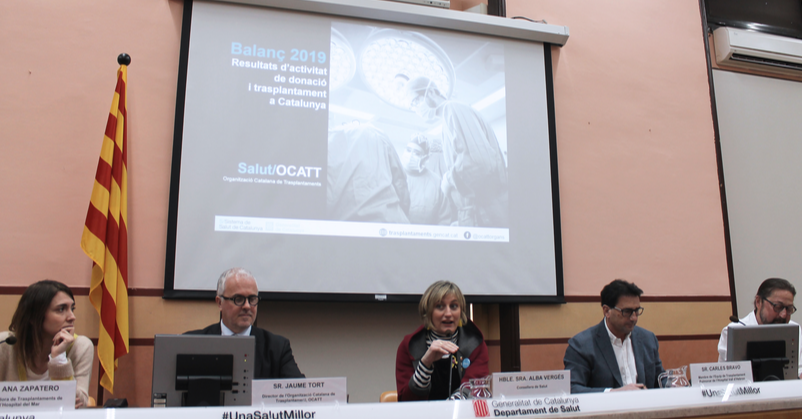- Transplants were up 12.6% from 2018 according to data reported by the Catalan Transplant Organisation
- The number of whole-body donations also reached a historic high of 376, an increase of 14.6% over the previous year

For the sixth consecutive year, Catalonia has set a new record for organ donations and transplants. With these results, achieved thanks to the generosity of organ donors and their families and the engagement and excellence of medical professionals, the Catalan public health system maintains its global leadership in this field.
The highlight of the data reported today by the Catalan Transplant Organisation (OCATT) is the new record of 1296 organ transplants in Catalonia, which is up 12.6% from 2018 and 53% from 2013. The transplant rate, which at 169 per million population may be the highest in the world, is further proof of Catalonia’s global leadership in this field.
During the press conference, the Minister of Health, Alba Vergés, said: “2019 has been a year of records” which has allowed Catalonia to “cement its global leadership in this field”. The minister stressed that the outstanding results had been achieved thanks to the “generosity of society” and the “excellence of the public health system and of medical professionals in their pursuit of these milestones”.
Echoing the points made by Vergés, OCATT director Jaume Tort said 2019 had been “an exceptional year”. “In Catalonia, a transplant is performed every seven hours. That means more than three a day.”
Also present at the press conference was Armando Latorre, who received a double lung transplant at Barcelona’s Vall d’Hebron Hospital in April 2019. Latorre thanked the donor for their generosity and said his life had changed completely because he needed the double transplant to live. “It wasn’t just my quality of life that was at stake; it was a matter of life and death,” he said, noting that “the organs of a deceased person do no good unless they’re donated”.
The number of whole-body donations handled by the Catalan health system also reached a historic high of 376, an increase of 14.6% over 2018 and 81.6% more than in 2013.